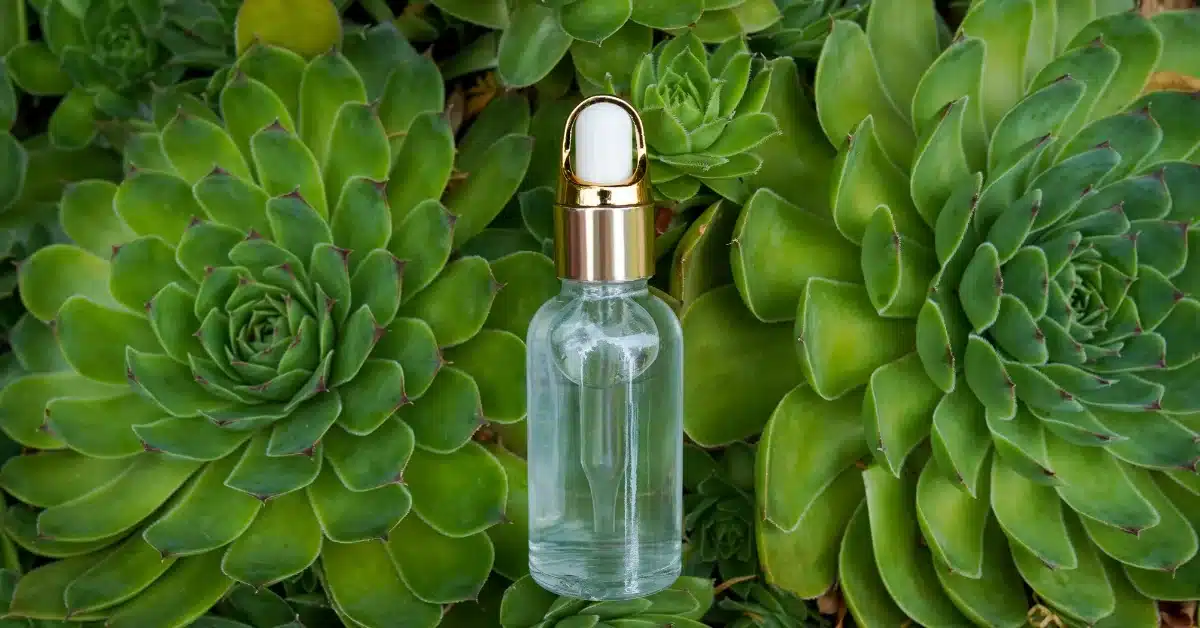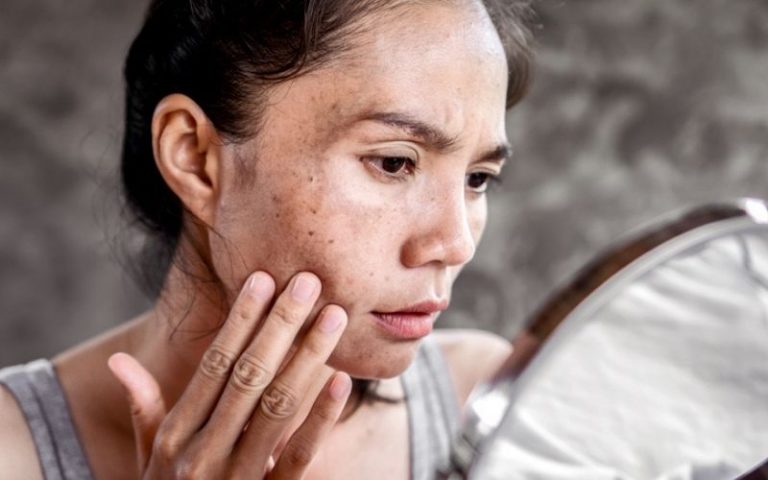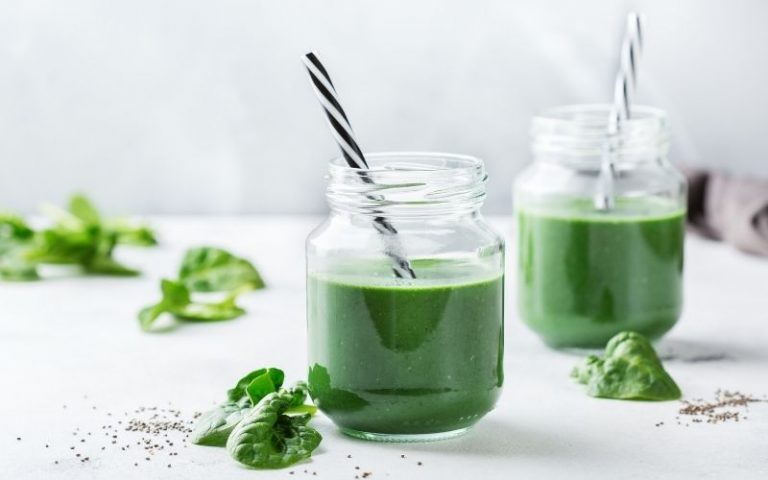Is Niacinamide Good For Anti-Aging?

Yes, Niacinamide is good for anti-aging. Niacinamide, also known as vitamin B3, is a potent ingredient that offers numerous benefits for the skin, including its effectiveness in combating signs of aging. It has been widely studied and recognized for its potential to improve the appearance of fine lines, wrinkles, and hyperpigmentation, making it a popular choice in skincare products.
In this article, we will delve into the science behind niacinamide and explore its potential benefits for combating the signs of aging.
Table Of Contents
- Understanding Niacinamide: The Anti-Aging Powerhouse
- The Science Behind Niacinamide: Supporting Research And Studies
- Targeting Fine Lines And Wrinkles: Niacinamide’s Role In Smoothing Skin
- Banishing Dark Spots: Niacinamide’s Brightening Benefits
- Boosting Hydration And Barrier Function: Niacinamide For Plump And Radiant Skin
- Combating Environmental Damage: Niacinamide As An Antioxidant
- Niacinamide in Skincare Routines: How to Incorporate for Maximum Anti-Aging Benefits
- Niacinamide Products To Try For Anti-Aging Benefits
- Potential Side Effects And Precautions When Using Niacinamide
- Conclusion: Is Niacinamide The Ultimate Anti-Aging Ingredient?
Understanding Niacinamide: The Anti-Aging Powerhouse
Niacinamide, a form of vitamin B3, has gained considerable attention in the skincare industry for its remarkable anti-aging properties. From decreasing fine lines and wrinkles to fading dark spots and boosting hydration, niacinamide offers a range of benefits that can assist individuals in achieving a youthful and radiant complexion.
What is Niacinamide and How Does it Work?
Niacinamide is a water-soluble vitamin that plays a vital role in various physiological functions of the body. It is a form of niacin and is easily absorbed by the body.
Niacinamide works by enhancing the production of ceramides, which are lipids that help maintain the skin’s barrier function. It also boosts collagen production, reduces inflammation, and inhibits the transfer of pigment to the skin’s surface. These properties make niacinamide a powerful ingredient for anti-aging skincare.
Key Benefits of Niacinamide for Anti-Aging
Niacinamide offers an array of benefits that contribute to overall skin health. Here are some key advantages of incorporating niacinamide into your skincare routine:
- Reduced Fine Lines and Wrinkles: Niacinamide helps to diminish the appearance of fine lines and wrinkles by stimulating collagen production, which improves skin elasticity and firmness.
- Brightened Complexion: By inhibiting melanin production, niacinamide fades hyperpigmentation, dark spots, and age spots, resulting in a more even skin tone and a brighter complexion.
- Improved Hydration: Niacinamide enhances the skin’s ability to retain moisture, resulting in improved hydration levels and plumper, more supple skin.
- Strengthened Skin Barrier: Niacinamide strengthens the skin’s protective barrier, preventing water loss and reducing the risk of environmental damage. This strengthens the skin’s overall resilience and minimizes signs of aging caused by external factors.
- Reduced Redness and Inflammation: Niacinamide has anti-inflammatory properties that help calm and soothe the skin, reducing redness and irritation associated with conditions like acne and rosacea.
How Niacinamide Addresses Common Signs of Aging?
Niacinamide addresses common signs of aging through its multifaceted mechanisms of action:
- Boosts Collagen Production: Niacinamide boosts the synthesis of collagen, a vital protein that provides structural support to the skin. By increasing collagen production, niacinamide helps plump the skin, reducing the depth of fine lines and wrinkles.
- Inhibits Melanin Transfer: By inhibiting the transfer of melanin to the skin’s surface, niacinamide helps fade hyperpigmentation and dark spots, resulting in a more youthful and even complexion.
- Enhances Skin Barrier Function: Niacinamide strengthens the skin’s protective barrier, improving its ability to retain moisture and defend against environmental stressors. This contributes to a healthier and more resilient complexion.
- Reduces Oxidative Stress: As an antioxidant, niacinamide neutralizes free radicals and minimizes oxidative stress, which can lead to premature aging. By minimizing oxidative damage, niacinamide helps maintain the skin’s youthful appearance.
- Promotes Cell Turnover: Niacinamide accelerates cell turnover, helping to slough dead skin cells and reveal a fresher, more vibrant complexion. This can improve skin texture and tone, further reducing the visible signs of aging.
The Science Behind Niacinamide: Supporting Research And Studies
Extensive scientific research has been conducted to explore the efficacy of niacinamide for anti-aging and skin health. These studies have provided compelling evidence supporting the use of niacinamide for improving skin texture, tone, and overall appearance.
Niacinamide plays a crucial role by enhancing the skin’s production of collagen and elastin fibers. These proteins are crucial for maintaining skin elasticity and firmness, which diminish with age.
By stimulating their synthesis, niacinamide helps reduce the appearance of fine lines and wrinkles. Furthermore, niacinamide functions as a powerful antioxidant, fighting against harmful free radicals that harm skin cells and expedite the aging process. It also enhances the skin’s protective barrier by boosting the production of ceramides, which aids in moisture retention and minimizes water loss from the skin. Additionally, studies have shown that niacinamide can regulate melanin production, thereby reducing hyperpigmentation and promoting an even complexion.
Clinical trials have further substantiated the anti-aging effects of niacinamide. One study conducted on women aged 40 to 60 showed that regular use of a niacinamide-infused moisturizer significantly reduced wrinkles, fine lines, and hyperpigmentation after 12 weeks. These findings highlight the potential of niacinamide as an effective anti-aging ingredient.
Targeting Fine Lines And Wrinkles: Niacinamide’s Role In Smoothing Skin
Fine lines and wrinkles are among the most visible signs of aging, and niacinamide can help address these concerns. By stimulating collagen production, niacinamide helps restore the skin’s natural structure and elasticity. Increased collagen levels result in smoother, plumper skin, reducing the appearance of wrinkles and fine lines. Regular use of niacinamide-based skincare products can lead to a more youthful and rejuvenated complexion.
Stimulating Collagen Production with Niacinamide
Collagen is a crucial protein that provides support and structure to the skin. As we grow older, the natural decline in collagen production results in the development of wrinkles and the loss of skin firmness.
Niacinamide has been shown to boost collagen synthesis, effectively counteracting the signs of aging. By incorporating niacinamide into your skincare routine, you can stimulate collagen production, resulting in firmer and more resilient skin.
Niacinamide’s Impact on Skin Elasticity and Firmness
Loss of skin elasticity is a common concern as we age, but niacinamide can help combat this issue. Niacinamide improves the skin’s elasticity by promoting elastin production, a protein responsible for the skin’s ability to stretch and snap back into place.
By enhancing elastin synthesis, niacinamide contributes to firmer and more supple skin, effectively reducing the appearance of sagging and promoting a youthful complexion.
Banishing Dark Spots: Niacinamide’s Brightening Benefits
Dark spots and hyperpigmentation can be troublesome for individuals seeking a more even skin tone. Niacinamide offers brightening benefits by inhibiting the transfer of melanin, the pigment responsible for skin pigmentation.
By reducing melanin production, niacinamide helps fade existing dark spots and prevents the development of fresh ones. Regular use of niacinamide-based products can lead to a more radiant and uniform complexion.
Inhibiting Melanin Production with Niacinamide
Melanin is generated by specialized skin cells called melanocytes and is responsible for imparting color to the skin, hair, and eyes. However, excessive melanin production can lead to hyperpigmentation and uneven skin tone.
Niacinamide has been shown to inhibit the transfer of melanosomes, the structures that contain melanin, from melanocytes to surrounding skin cells. By doing so, niacinamide helps reduce the appearance of dark spots and promotes a more balanced complexion.
Achieving a More Even Skin Tone with Regular Niacinamide Use
Niacinamide’s ability to fade hyperpigmentation and promote a more even skin tone makes it a valuable ingredient for individuals with mature skin. Whether dealing with age spots, sun damage, or post-inflammatory hyperpigmentation, niacinamide can help restore a more uniform complexion. Incorporating niacinamide into your skincare routine can gradually diminish the appearance of dark spots and contribute to a smoother and more radiant skin tone.
Boosting Hydration And Barrier Function: Niacinamide For Plump And Radiant Skin
Adequate hydration is crucial for maintaining healthy and youthful-looking skin. Niacinamide plays a crucial role in enhancing skin hydration and moisture retention, making it an ideal ingredient for individuals with mature skin.
By strengthening the skin’s natural barrier, niacinamide helps reduce water loss and improves the skin’s ability to retain moisture. This hydration boost results in plumper and more supple skin, promoting a radiant and youthful complexion.
How Niacinamide Improves Skin Hydration and Moisture Retention
Niacinamide’s hydrating properties stem from its ability to improve the skin’s natural barrier function. The skin’s barrier is composed of lipids, including ceramides, that form a protective layer on the surface. This barrier helps retain moisture and prevents the entry of harmful substances.
Niacinamide enhances the production of ceramides, thereby strengthening the skin’s barrier and reducing transepidermal water loss. By improving hydration and moisture retention, niacinamide contributes to smoother, plumper, and more nourished skin.
Strengthening the Skin’s Protective Barrier with Niacinamide
A compromised skin barrier can lead to various problems, including dryness, sensitivity, and accelerated aging. Niacinamide is renowned for its capacity to enhance the skin’s protective barrier, supporting overall skin health. By strengthening the barrier, niacinamide helps protect the skin against environmental stressors like pollution and UV radiation, which can cause damage and premature aging.
Adding niacinamide to your skincare regimen can enhance your skin’s ability to defend against external aggressors, resulting in a healthier and more resilient complexion.
Achieving a Radiant and Youthful Glow with Properly Hydrated Skin
Well-hydrated skin tends to appear more radiant and youthful. By improving hydration levels and strengthening the skin’s barrier, niacinamide contributes to a vibrant and glowing complexion. Properly hydrated skin reflects light more effectively, giving it a healthy and youthful appearance.
Regular use of niacinamide-infused products can help you achieve a plump and radiant complexion that exudes vitality and well-being.
Combating Environmental Damage: Niacinamide As An Antioxidant
Environmental stressors, such as pollution and UV radiation, can wreak havoc on the skin, accelerating the aging process. Niacinamide acts as an antioxidant, helping to neutralize free radicals and reduce oxidative damage caused by these external factors.
Free radicals are highly reactive molecules that can damage cells and contribute to premature aging. By neutralizing free radicals, niacinamide helps protect the skin from environmental damage and preserves its youthful qualities.
Niacinamide’s Role in Protecting the Skin Against Environmental Stressors
The skin is regularly subjected to environmental stressors that can compromise its health and appearance. Factors such as pollution, UV radiation, and harsh weather conditions can damage the skin and accelerate aging.
Niacinamide acts as a shield against these stressors, providing protection and reducing the negative impact they can have on the skin. Incorporating niacinamide into your skincare routine can enhance your skin’s resilience and minimize the signs of aging caused by external factors.
Neutralizing Free Radicals and Reducing Oxidative Damage
Free radicals are unstable molecules formed due to various internal and external factors, including UV radiation, pollution, lifestyle choices (such as smoking, consuming alcohol), and an unhealthy diet. These molecules can cause oxidative damage to cells and tissues, leading to accelerated aging and the appearance of wrinkles, fine lines, and dullness.
Niacinamide’s antioxidant properties enable it to neutralize free radicals, effectively reducing oxidative stress and preserving the skin’s youthful qualities. Incorporating niacinamide into your skincare regimen can assist in safeguarding your skin against the damaging effects of free radicals and maintain a more youthful and radiant complexion.
Enhancing the Skin’s Resilience and Minimizing Signs of Aging Caused by External Factors
External elements, such as sun exposure, pollution, and other environmental stressors, can accelerate the aging process and contribute to the development of various skin concerns.
Niacinamide’s protective and antioxidant properties make it an invaluable ally in combating these external factors. By strengthening the skin’s barrier, neutralizing free radicals, and reducing oxidative damage, niacinamide helps enhance the skin’s resilience and minimize the signs of aging caused by external factors.
Incorporating niacinamide into your skincare regimen can aid you in maintaining a healthier, more youthful-looking complexion for longer.
Niacinamide in Skincare Routines: How to Incorporate for Maximum Anti-Aging Benefits
Choosing Niacinamide-Infused Skincare Products
When selecting skincare products containing niacinamide, it’s important to consider the concentration and formulation. Niacinamide is typically well-tolerated by most skin types, including mature or sensitive skin.
1. Niacinamide Serums
Niacinamide serums are a popular choice for those looking to target specific skin concerns. These serums typically have a higher niacinamide concentration, allowing maximum efficacy. Apply a small amount of the serum to your cleansed and dry skin, then softly massage it in until fully absorbed. Follow with your regular moisturizer and sunscreen.
2. Moisturizers and Creams
Many moisturizers and creams now include niacinamide as a key ingredient. Look for products that mention niacinamide high up on the ingredient list to ensure you’re getting an effective concentration. Apply the moisturizer or cream as the last step in your skincare routine, both morning and evening.
3. Niacinamide Toners and Essences
Toners and essences are lightweight liquids that are typically applied after cleansing to prepare the skin for the subsequent stages of your skincare routine. Look for toners and essences that contain niacinamide to help hydrate and prep the skin while delivering anti-aging benefits.
Look for products with a concentration of around 2-5% niacinamide to ensure optimal effectiveness without causing irritation. Additionally, opt for products that are free from harsh ingredients like sulfates or synthetic fragrances to minimize the risk of sensitivities.
Complementary Ingredients to Enhance Niacinamide’s Effects
Niacinamide can be combined with other ingredients to enhance its anti-aging effects. For instance, pairing niacinamide with hyaluronic acid can provide a potent hydration boost, as hyaluronic acid is known for its ability to attract and retain moisture in the skin.
Additionally, combining niacinamide with antioxidants, such as vitamin C or green tea extract, can further enhance its protective properties against free radicals and environmental stressors.
Recommended Application Methods and Frequency for Optimal Results
To incorporate niacinamide into your skincare routine, start by cleansing your face thoroughly with a gentle cleanser. After cleansing, apply a few drops of niacinamide serum or a niacinamide-infused moisturizer to your face and neck, softly massaging it into the skin. Follow up with broad-spectrum sunscreen during the day to protect your skin from UV radiation.
For optimal results, it is recommended to use niacinamide products twice a day, in the morning and evening. Consistency is the key when it comes to skincare, so incorporate niacinamide into your routine consistently for a prolonged period to experience its full anti-aging benefits.
Niacinamide Products To Try For Anti-Aging Benefits
Now that you’re well-versed in the benefits of niacinamide for anti-aging, let’s explore some top-rated products that harness its anti-aging properties:
1. The Ordinary Niacinamide 10% + Zinc 1%
This cult-favorite serum combines niacinamide with zinc to regulate sebum production and diminish the visibility of blemishes. It’s suitable for all skin types and is a budget-friendly option for those looking to incorporate niacinamide into their routine.
2. Paula’s Choice 10% Niacinamide Booster
This concentrated booster contains 10% niacinamide and is designed to target signs of aging, enlarged pores, and uneven skin tone. It can be combined with your preferred moisturizer or directly applied to the skin for optimal effectiveness.
This serum is formulated with 5% niacinamide and zinc, which helps calm redness and balance the skin. It’s lightweight and absorbs quickly, making it suitable for all skin types.
Remember, when choosing a niacinamide product, always check the ingredient list to ensure you’re getting an effective concentration of niacinamide. Additionally, consider your skin type and specific concerns to find the product that’s best suited for you.
Potential Side Effects And Precautions When Using Niacinamide
Niacinamide is generally considered safe for most individuals, even those with sensitive skin. However, as with any skincare ingredient, it’s important to be mindful of potential side effects and exercise caution when using niacinamide.
1. Allergic Reactions
While rare, some individuals may experience allergic reactions to niacinamide. If you experience any signs of redness, itching, or swelling following the application of the product containing niacinamide, discontinue use and consult a dermatologist.
2. Interactions with other Skincare Ingredients
Niacinamide is generally well-tolerated and can be used alongside other skincare ingredients. However, it’s always a good idea to consult with a skincare professional or do a patch test if you’re unsure about how niacinamide might interact with other products in your routine.
3. Sun Sensitivity
While niacinamide does not cause sun sensitivity, it’s important to always wear sunscreen when using anti-aging products. Sunscreen shields your skin from harmful UV radiations and helps prevent further signs of aging.
By being mindful of possible side effects and implementing the necessary precautions, you can confidently include niacinamide in your skincare regimen and reap its myriad benefits.
Conclusion: Is Niacinamide The Ultimate Anti-Aging Ingredient?
After exploring the age-defying secrets of niacinamide, it’s clear that this powerhouse ingredient has earned its reputation as the ultimate anti-aging ingredient. With its ability to boost collagen production, protect the skin from free radical damage, and address a wide range of skin concerns, niacinamide is a must-have in every skincare routine.
Whether you’re looking to reduce fine lines and wrinkles, improve skin texture and tone, or lighten hyperpigmentation, niacinamide offers a comprehensive solution. Its versatility and compatibility with other skincare ingredients make it suitable for individuals of all ages and skin types.
So, if you’re ready to unveil the age-defying secrets of niacinamide and revolutionize your skincare routine, it’s time to incorporate this powerhouse ingredient along with other natural anti-aging ingredients into your daily regimen. Say hello to a youthful, radiant complexion that will make you look and feel your best.
FAQs
Q: Can niacinamide be used on all skin types?
A: Yes, niacinamide is suitable for all skin types, including oily, dry, and sensitive skin. Its non-comedogenic nature makes it a safe and effective ingredient for a wide range of individuals.
Q: Is niacinamide safe to use with other active skincare ingredients?
A: Yes, niacinamide is generally well-tolerated and can be safely combined with other active skincare ingredients, such as retinol, vitamin C, and AHAs. However, it’s always advisable to perform a patch test and introduce new products gradually to minimize the risk of irritation.
Q: Can niacinamide replace other anti-aging ingredients like retinol?
A: Niacinamide and retinol offer different but complementary benefits for the skin. While retinol is highly effective at stimulating collagen production and reducing wrinkles, niacinamide provides additional benefits such as improved hydration, reduced redness, and antioxidant protection. Using both ingredients in your skincare routine can maximize the anti-aging effects.
Q: How long does it take to see results from niacinamide use?
A: Visible results from niacinamide use can vary depending on individual factors, such as skin type and specific concerns. However, with consistent use, improvements in skin texture, tone, and overall anti-aging benefits can typically be observed within a few weeks to a couple of months.
Q: Can niacinamide be used during the day? Does it make the skin more sensitive to the sun?
A: Niacinamide is safe for daytime use and does not increase the skin’s sensitivity to the sun. In fact, niacinamide has been shown to provide some degree of protection against UV-induced skin damage. However, it’s still essential to apply a broad-spectrum sunscreen as the final step in your daytime skincare routine for comprehensive sun protection.
Q: Are there any side effects associated with niacinamide use?
A: Niacinamide is generally well-tolerated and rarely causes side effects. However, some individuals may experience mild irritation, redness, or dryness when first introducing niacinamide into their skincare routine. If any adverse reactions occur, it is recommended to discontinue use and consult a dermatologist.
References
https://www.healthline.com/health/niacinamide-and-retinol
https://www.dermatologytimes.com/view/anti-aging-effects-niacinamide
https://www.self.com/story/what-niacinamide-can-do-for-your-skin
https://health.clevelandclinic.org/niacinamide/





